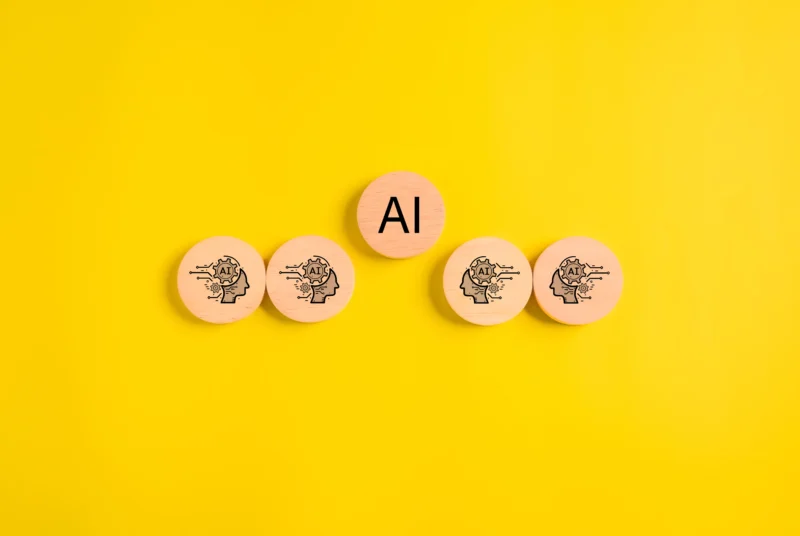When we speak about AI’s influence on the way we produce and share written content, AI text generator are undisputed game-changers. These advanced tools use machine learning to generate cohesive text that’s relevant to a user’s input.
They’re steadily transforming many writing-related fields, making operations from copywriting to linguistic improvements more effortless.
Among the impressive feats of an AI Text Generator is its fast text production in alignment with a given context and tone. This makes it a valuable tool for writers, marketers, and developers.
By mining immense quantities of text data, these AI-operated systems isolate patterns in human language to produce content mirroring natural human language articulation.
However, amid all the forward strides of AI in content generation, ethical and intellectual challenges remain relevant. As AI smooths content production, ensuring originality and unbiased language continues to be a pressing concern.
As this technology adapts and evolves, balancing automated assistance with a human touch will be essential to truly unlocking AI’s content creation potential.
Dissecting AI Text Generators
Writers, marketers, and businesses value AI text generators as a quick and affordable way to produce text that resembles human language.
Utilizing advanced techniques in Natural Language Processing (NLP) and Deep Learning, AI models give life to a wide array of written content, such as blog articles, social media updates, marketing copies, and even poetry.
Decoding the Science Behind AI Writers
At the heart of AI Text Generators is a robust Language Model. Renowned language models like OpenAI’s GPT series are based on Transformer architectures that pave the way for understanding and creating written text through complex patterns and structures.
These AI models are refined using colossal datasets of existing written content, enabling them to master diverse writing styles and tones across multiple languages.
Another significant contributor to AI text generation technology is Deep Learning. This feature allows the AI model to scrutinize and modify its subservient text based on user-provided context.
Through sophisticated algorithms, AI Text Generators deliver relevant, sensible, and top-quality content adhering to user inputs.
AI text generation tools often exhibit their functionality via an API interface, which programmers can use to integrate AI writing technology into their software. Popular AI text generator APIs encompass OpenAI’s GPT and Jasper.
Navigating Different AI Writing Software
Different types of AI Writing Software exist in the market, curated to cater to variables in user requirements:
- General-purpose AI writers: AI text generators that manage a broad assortment of content types, from blog articles and social media updates to creative writing like poetry and storytelling.
- Specialized AI writers: These AI generators are designed for specific domains or industries, such as marketing copywriting, technical documentation, or news articles.
- AI language translators: Leveraging AI and NLP, these tools provide automated translation services for different languages, simplifying the creation and localization of content in multiple languages.
When settling on an AI text generator, it’s crucial to understand your specific needs and the kind of content that requires generation. Prioritize finding a tool that delivers high-quality and realistic text outputs for a more professional and engaging style.
Utilization of AI Text Generators
AI text generators prove valuable in content creation for digital marketing, academic writing, professional writing, and business communication, among other fields.
This article emphasizes three substantial use cases: digital marketing content creation, producing academic and professional writing, and improving business communication.
Digital marketers can harness the power of AI text generators to produce effective content for diverse digital marketing channels such as blog articles, social media, emails, and product descriptions.
High-impact ad copy for sites like Google Ads and Facebook Ads, engaging content for email marketing campaigns, and persuasive product descriptions can all be achieved through AI writing.
In the academic and professional fields, AI text generators can be a priceless tool for generating content such as articles, papers, essays, and reports. These AI writing assistants can aid in maintaining grammar, citation standards, and complex sentence structures.
AI text generators aid in the improvement of both internal and external communication in businesses. They help distribute seamless, error-free emails, polished and professional reports, and brief, informative product information for customers.
Thus, AI text generators serve a versatile role in digital marketing, academia, and professional settings.
Merits of Adopting AI Text Generators
AI text generators aid in enhancing writing efficiency and productivity. Through these generators, the formation of well-structured paragraphs and coherent idea flow becomes faster, quantifiably increasing writing productivity.
Utilization of machine learning algorithms by AI generators ensures the swift production of well-structured paragraphs and a coherent flow of ideas.
AI text generators are also proficient in delivering unique and high-quality content, which is essential for standing out amidst stiff competition in the digital environment. Multiple iterations of descriptions by AI generators ensure that the content remains detailed, engaging, and accurate.
AI text generators can significantly boost writing efficiency and quality, presenting businesses and individuals alike with undeniable advantages.
Advanced machine learning algorithms and customizable templates suggest that these tools may change the way content creation is approached.
Challenges and Considerations with AI Text Generators
Users should be conscious of potential risks associated with plagiarism and originality when employing AI Text Generators to create content. Consider the need for:
- Using AI-generated text as a launchpad and personalizing it for originality
- Fact-checking AI-generated information for accuracy
- Implementing plagiarism detection tools to ensure content authenticity
While AI text generators can aid productivity and efficiency, the balance between human creativity and AI-generated content is paramount. Relying excessively on AI may erase a writer’s creative flair and personal touch.
Using AI as writing assistance, aiding tasks such as proofreading or suggesting improvements, can blend human intelligence and AI efficiency, producing balanced, high-quality content.
How to Decide on an AI Text Generator
When choosing an AI text generator, consider factors such as price, features, and the quality of the generated content.
Understanding a tool’s pricing structure and unique features, along with the realism and quality of the generated text, can help make a more informed decision when choosing an AI text generator.
Integration and Implementation of AI Generators
Integrating AI text generators into workflows has the potential to improve productivity and efficiency substantially.
It’s important to ensure that your chosen AI text generator is user-friendly, straightforward to introduce into your present systems, and compatible with your current tools and platforms.
Foresight into AI Text Generation
AI Text Generation has seen astounding evolution recently. As AI text generation growth proceeds rapidly, the responsibility to ensure ethical practices is of paramount importance.
Balance between human creativity and AI assistance remains a vital point, with AI seen more as an aid than a full replacement for human inputs, optimizing the process of content creation while retaining unique voice and creative capabilities.




